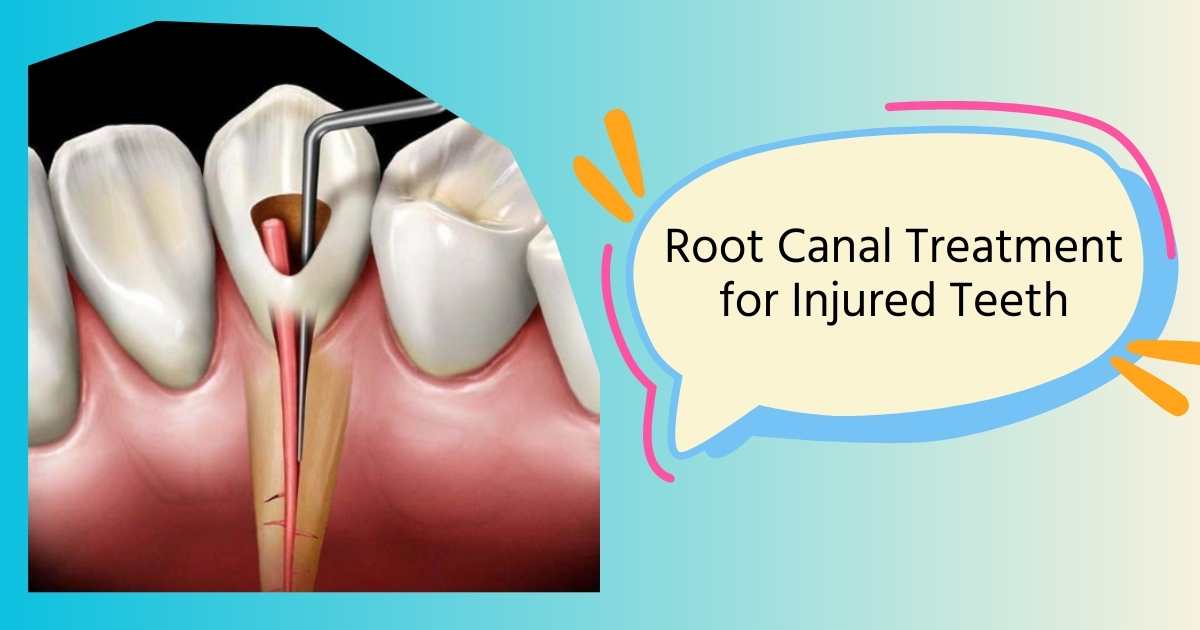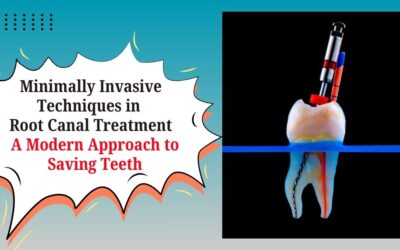Dental trauma can be excruciating with pain and can indeed be an upsetting event. Damage to a single tooth or a set of teeth can go beyond what is apparent at first glance, frequently impacting the pulp and nerves of the tooth. In these situations, receiving root canal treatment may be essential to preserving the tooth and reducing discomfort.
What is Root Canal Treatment?
The goal of any endodontic therapy like Root Canal Treatment is to remove diseased or damaged pulp from within teeth. By thoroughly cleaning and sealing the root canals, this therapy seeks to save the tooth by halting the spread of infection and regaining its functioning.
Causes of Dental Trauma
Dental trauma can result due to various incidents and accidents:
- Sports Injuries: Direct blows to the face from any contact sports can result in tooth fractures or dislodgement of the teeth.
- Accidents: Unexpected events such as two wheeler accidents or accidents on the road, falls, and other mishaps can harm teeth.
- Physical Altercations: During an event involving brawls, blows to the mouth can seriously damage teeth.
What are the Signs That You Might Need a Root Canal After Trauma?
It’s critical to recognize the following symptoms to ensure that a root canal treatment is performed as soon as possible:
- Persistent Pain: Suffering that does not go away even after the first injury is a major marker of underlying harm.
- Swelling and Tenderness: An infection may be indicated by swelling surrounding the afflicted tooth and gums.
- Discoloration: It can be understood that a tooth that has discolored might have pulp injury.
- Sensitivity: One sign of pulp damage is an increased sensitivity to hot or cold food.
The Root Canal Procedure
Initial Examination
A comprehensive evaluation by a dentist starts the procedure. This calls for the use of
- X-rays: Are useful in determining the location of the infection and gauge the degree of damage.
- Physical Examination: Helps to look for outward indications of infection and trauma.
The Treatment Process
To make the affected region numb, local anesthetic is given. To access the injured pulp of the tooth, a tiny aperture is created. To clean the root canals and remove the diseased pulp, specialized tools are employed. Gutta-percha, a biocompatible substance, is typically used to fill the cleansed canals. In order to stop more contamination, the tooth is then sealed with a temporary or permanent filling.
Recovery and Aftercare
Following the root canal procedure, appropriate care is necessary for your recovery:
- Medication: To control pain and stop infection, doctors may give antibiotics and painkillers.
- Oral Hygiene: To ensure proper dental health, practice consistent brushing and flossing.
- Repeated Visits: Frequent examinations guarantee proper tooth recovery and keep an eye out for potential issues.
Benefits of Root Canal Treatment
When teeth are damaged, root canal treatment gives the following advantages:
- Discomfort Relief: Eliminates the cause of discomfort brought on by pulp damage or infection.
- Preservation: Preserves the natural tooth without requiring its extraction.
- Functionality: Returns the tooth to its typical state so that you may bite and chew with comfort.
In order to preserve dental health and save damaged teeth, root canal treatment is essential. Making educated decisions regarding your dental care may be aided by being aware of the symptoms that point to the necessity for a root canal as well as understanding what to anticipate from the process. Call your dentist right away to explore your options if you think you may have trauma-related tooth damage. You may reduce discomfort and keep your natural smile by taking care of the problem as soon as possible.




